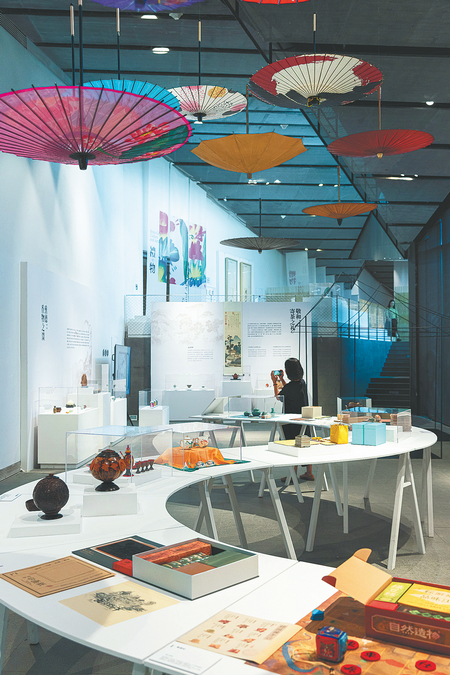

Liu's findings, the transcripts of her interviews and associated artifacts are being shown in an ongoing exhibition she curated, themed on rites and gifts. With Juxi village as the main case study, the exhibition traces the history of rites, and explores the cultural significance of gifts in China.
Liu breaks down the Chinese word liwu (gifts) into li and wu. "The first part, li, has rich connotations, including the meaning of rites, etiquette, politeness, ceremonies among others," she says. "The latter, wu, is common and easy to understand, and means objects or things, but in the field of material culture studies, objects hold the special significance of consolidating culture."
In her opinion, li is one of the core values of traditional Chinese culture, with an emphasis on mutual respect, reverence and etiquette among people. Gifts represent the act of giving items as a way of expressing respect, gratitude, friendship among other forms of goodwill.
"During my research and travels in rural areas, I sensed the presence of Confucian principles like moderation and order in the villages' customs and regulations, as well as in the relationships between villagers," Liu says.
During her visit to 94-year-old Kong Jinliang, a 75th generation descendant, Kong Jinliang spoke of the village tradition of making sacrifices to the ancestors that predates the founding of the People's Republic of China in 1949.
"I lived with my grandparents when I was little and my grandfather was a farmer," Kong Jinliang says.
"He didn't have much education and never talked to us about Confucius, but he did say that it is important for people to value loyalty and filial piety."
Kong Jinliang also says that despite being poor, his grandfather was highly respected in the village and took the role of leader whenever the village made sacrifices to the ancestors.
Every Sept 28, the conventional day of paying homage to Confucius, a ceremony is held in the village's temple.
"The regular ceremony is usually small-scale, but every 10 years, a grand ceremony is held, where a whole cow, pig, sheep and other ceremonial items are offered. The small-scale ceremonies offer pork, chicken, alcohol, incense, candles, joss paper ingots and suchlike," Kong Jinliang says.